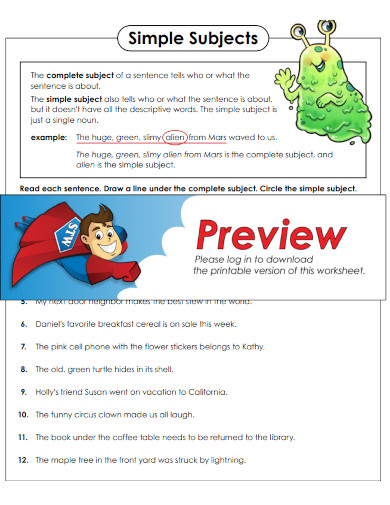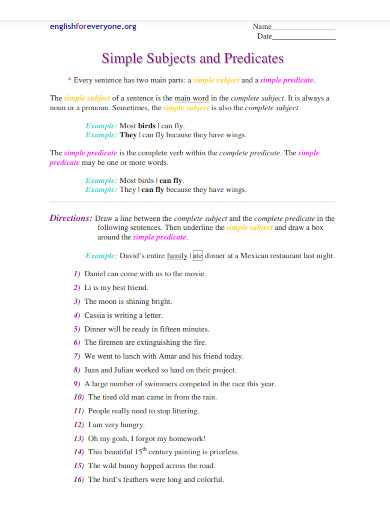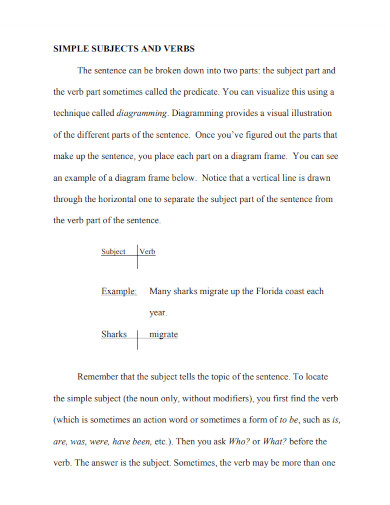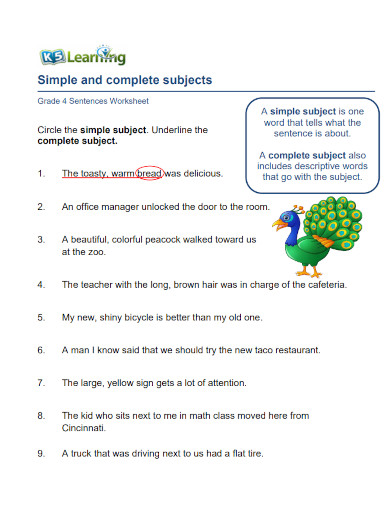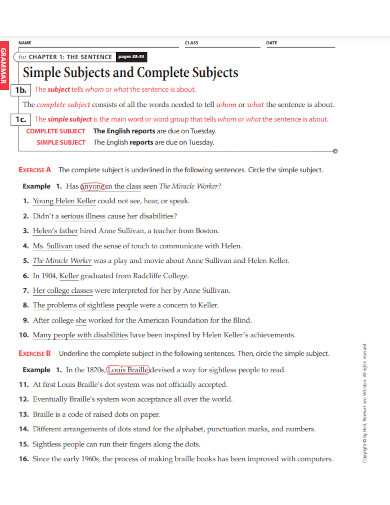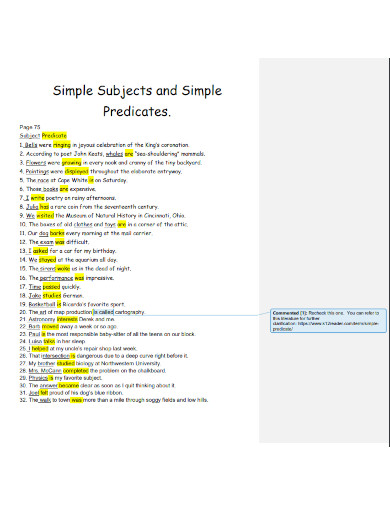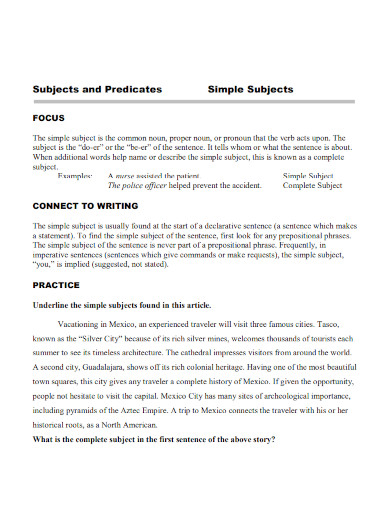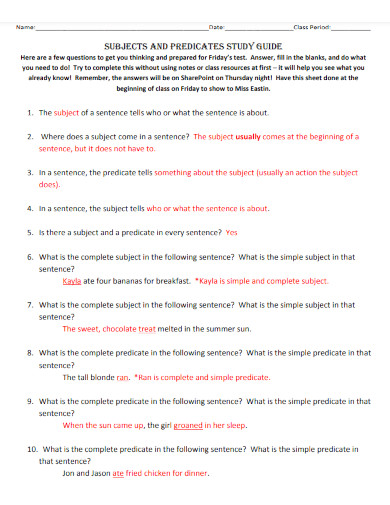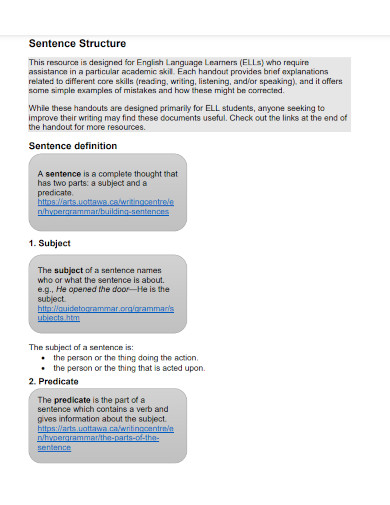Simple Subject
A subject is a noun, which may be a person, place, object, or concept. Subjects can also be verbs. A subject informs us who or what the sentence is going to be about and might be either a proper noun or a pronoun. A sentence cannot be complete without a subject. A subject is considered to be simple when there is just one noun serving as the focal point of the sentence that pertains to the subject.
1. Simple Subjects Template
2. Simple Subjects and Predicates
3. Simple Subjects and Verbs
4. Simple and Complete Subjects Worksheet
5. Simple Subjects and Complete Subjects
6. Simple Subjects and Simple Predicates
7. Subjects and Predicates Simple Subjects
8. Simple Subjects and Predicates Study Guide
9. Simple Subjects Sentence Structure
What is a Simple Subject?
The most fundamental building block of a sentence is likely the topic. A noun, which might be a person, place, object, or concept, is a topic. A topic sentence identifies the person or thing that the sentence will be about. A sentence cannot be complete without a topic. One noun serves as the subject of a simple sentence. This indicates that just one noun performs the action or relates to the verb in the phrase.
How to use Simple Subjects
One may find both simple subjects and complete subjects in every phrase. A sentence’s simple subject is the noun or pronoun at its center, whereas a complete subject incorporates that word as well as any adjectives or adverbs that describe it.
Step 1: Eliminate extra words
When trying to identify the “who” or “what” in the center of a statement, it helps to first remove any unnecessary modifiers.
- The friendly dog played fetch
“The friendly dog” is the whole subject, and “the friendly” is an adjective that describes the main noun, “dog.” Because of this, “dog” is easily the simple subject.
Step 2: Simple subject is the noun
The simple subject is always the noun or noun phrase itself, regardless of how many modifiers that subject contains. A noun phrase, such as “ice cream,” consists of two or more words that do not serve as modifiers.
Step 3: Singular or Plural
In order to ensure that your subject and verb are consistent, use the simple subject to determine if your subject is single or plural. With the help of our no-cost grammar worksheet, you can be sure that your subject-verb agreement is always spot-on.
Step 4: Multiple-word Simple Subjects
Certain proper nouns, like a person’s full name, are more complicated than other nouns because they need two words to express the whole meaning. Nonetheless, a noun or pronoun may serve as a basic subject in most cases. Compound nouns and infinitives both serve as subjects in certain phrases.
FAQs
How do you write a simple subject?
Unlike compound-complex sentences, or bridge sentences. A simple subject is usually a person, location, or object that is doing something. In contrast to a complete subject, which includes the noun it modifies, a simple subject is only one word.
What is the format of a simple sentence?
Simple sentences have only one independent clause, which has a subject and a verb. Even in simple sentences, you can use modifiers, compound sentence subjects, and compound verbs or predicates. Subject, verb, and object, or SVO order, is the most common way for a simple sentence to be put together.
How do you identify the subject and object in a sentence?
In a sentence, the subject is the thing that the verb acts on, and the direct object is the person, thing, or place that the action affects or is affected by. That is, the subject does something and the object gets something. A sentence needs a subject, but an object is not always needed.
The remainder of the sentence is much simpler to comprehend after you have identified the simple subject. Keep in mind that the simple subject of a sentence informs you, without any further words, who or what the sentence is about.



